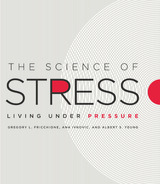
Four years in the making, this entirely revised edition of a classic text provides a lucid and erudite review of the state of psychiatry today. Since the publication of the last edition in 1988, remarkable advances have been made in laboratory and clinical psychiatric research; the fourth edition of the Diagnostic and Statistical Manual of Mental Disorders (DSM-IV) has been published; managed care has radically altered the provision of all medical care; and the profession of psychiatry has come to a sophisticated new understanding of the interplay between psychiatric knowledge and issues in the larger society.
All these changes are reflected in the new text. Of particular interest are the masterful and lucid reviews of current knowledge in the neurobiology of mental disorders, in the section on brain and behavior. The section on psychopathology clarifies newly emerging diagnostic categories and offers new insight into addictions, anxiety disorders, and disorders of cognition.
Like its predecessors, The Harvard Guide To Psychiatry focuses throughout on the relationship between the physician and the patient. Its unspoken motto is that the art of psychiatry is as important as the science. For this recognition of what is relevant clinically as well as technically, this book will be an essential reference and support for both the new and the experienced psychiatrist.
This new edition includes up-to-date discussions of:DSM-IVManaged careImprovements in neuroimagingThe increased use of psychoactive drugsRecent advances in molecular biologyResearch on the biology of schizophrenia, depression, anxiety, and addictive disorders

As Fricchione and his colleagues show, alleviating stress is a task that no one physician can alleviate for us on his own. It is not the sort of problem that a surgeon can excise with a scalpel or an internist can eradicate with antibiotics. It requires everyone’s efforts—the healthy, the sick, doctors, nurses, psychologists, clergy, community leaders, and everyone else—to pull together to address the stress-induced drivers in our community that undermine our health. Clearly and accessibly exploring the latest in modern neuroscience and immunology, the authors examine what those drivers are and how they reduce the body’s metabolic reserve, making us more vulnerable to illness. They then look at the antidote: enhanced resilience, something we can achieve by smartly adjusting how we face the significant adversities that can spring up in so many facets of our lives.
Offering innumerable insights on the personal and social causes of stress and the physiological effects they have, this book serves as an essential guide to show us how to alleviate stress and properly take care of ourselves. In doing so, it offers a crucial first step toward meeting the biggest health challenge of this century.
READERS
Browse our collection.
PUBLISHERS
See BiblioVault's publisher services.
STUDENT SERVICES
Files for college accessibility offices.
UChicago Accessibility Resources
home | accessibility | search | about | contact us
BiblioVault ® 2001 - 2024
The University of Chicago Press









